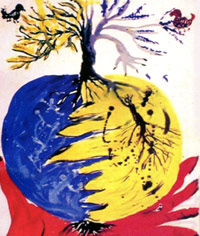Sreda.uz Mengulas Slot Gacor sebagai Bagian dari Tren Hiburan Digital

Hiburan digital terus berkembang mengikuti perubahan perilaku pengguna internet. Salah satu topik yang cukup sering muncul dalam diskusi online adalah slot gacor, istilah yang digunakan komunitas untuk menggambarkan permainan slot yang dirasakan lebih aktif pada periode tertentu.
Sreda.uz mengamati bahwa meningkatnya pembahasan mengenai slot gacor tidak lepas dari kemudahan akses teknologi dan meluasnya penggunaan perangkat mobile. Pengguna kini dapat dengan mudah mengakses berbagai bentuk hiburan digital kapan saja sesuai kebutuhan mereka.
Slot Gacor dalam Perspektif Pengguna
Dalam dunia permainan online, slot dikenal sebagai jenis permainan dengan mekanisme sederhana dan tempo cepat. Istilah gacor sendiri berkembang dari pengalaman pemain yang merasa permainan tertentu berjalan lebih lancar dibandingkan waktu lainnya.
Meskipun hasil permainan bersifat acak, pembahasan mengenai slot gacor tetap menarik perhatian karena mencerminkan cara pengguna mencoba memahami pola dan ritme permainan berdasarkan pengalaman kolektif.
Peran Komunitas dan Informasi Digital
Komunitas online memiliki peran penting dalam menyebarkan informasi seputar permainan slot. Melalui forum, media sosial, dan grup diskusi, pemain saling berbagi pandangan dan pengalaman mereka.
Sreda.uz menilai bahwa arus informasi dari komunitas inilah yang membuat topik slot gacor terus relevan. Diskusi yang aktif membantu membentuk persepsi dan minat pengguna lain terhadap permainan slot.
Hiburan Online sebagai Pilihan Fleksibel
Meningkatnya minat terhadap permainan slot juga berkaitan dengan kebutuhan hiburan yang fleksibel. Banyak pengguna memilih hiburan digital karena dapat dinikmati dalam waktu singkat tanpa persiapan yang rumit.
Kondisi ini menjadikan permainan slot sebagai salah satu opsi hiburan yang mudah diintegrasikan ke dalam rutinitas harian pengguna internet.
Penutup
Slot gacor mencerminkan bagaimana hiburan digital, komunitas, dan perilaku pengguna saling memengaruhi. Sreda.uz akan terus mengikuti perkembangan tren hiburan online untuk memberikan gambaran yang relevan mengenai dinamika dunia digital.